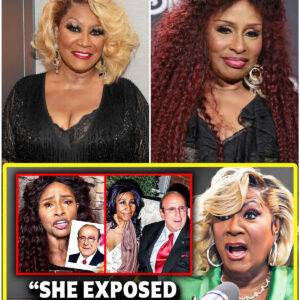Bill Duke Critiques Tyler Perry’s Controversial Path to Stardom
Tyler Perry’s journey to success began with his signature character, Madea, a larger-than-life grandmother figure played by Perry himself. Madea became a cultural phenomenon, resonating particularly within African-American audiences for her sharp wit and unapologetic humor. Perry’s early works, typically produced independently through his own studios, gained traction through grassroots marketing and word-of-mouth, establishing him as a formidable force in the entertainment industry.
However, it is Perry’s portrayal of African-American stereotypes and his approach to storytelling that has come under fire. Critics argue that Perry’s characters often reinforce negative stereotypes, portraying black women as sassy and aggressive or black men as irresponsible and inept. This portrayal, while resonating with some audiences, has been accused of perpetuating harmful stereotypes rather than challenging or subverting them.
Bill Duke, known for his roles in iconic films like “Predator” and “Menace II Society,” has been vocal in his criticism of Perry’s work. Duke argues that Perry’s success has been built on pandering to the lowest common denominator of African-American culture, exploiting stereotypes rather than challenging them. He points to Perry’s portrayal of Madea as emblematic of this issue, suggesting that while the character initially provided comic relief, over time, she has become a caricature that reinforces outdated and harmful perceptions.
Moreover, Duke questions Perry’s impact on broader societal views of African-Americans, suggesting that by perpetuating these stereotypes, Perry may inadvertently contribute to a regressive understanding of black identity. Duke emphasizes the importance of nuanced and authentic representations in media, arguing that while Perry’s success is undeniable, it should not come at the expense of reinforcing harmful stereotypes.

In response to criticism, Tyler Perry has defended his work as reflecting the diversity of African-American experiences. He has pointed to his efforts in creating opportunities for black actors, writers, and directors who might otherwise be marginalized in Hollywood. Perry’s defenders argue that his success in creating a viable independent studio model and his philanthropic efforts within African-American communities outweigh any criticisms of his creative choices.
Nevertheless, the debate surrounding Tyler Perry’s legacy remains contentious. While supporters laud him for his entrepreneurial spirit and commitment to diversity in entertainment, detractors like Bill Duke caution against the potential long-term implications of perpetuating stereotypes for commercial gain. The discussion extends beyond individual works to encompass broader questions about representation, authenticity, and responsibility within the entertainment industry.
As Tyler Perry continues to expand his influence and diversify his portfolio with projects ranging from comedy to drama, the conversation ignited by critics like Bill Duke underscores the complex interplay between art, commerce, and social responsibility. Whether Perry’s impact on African-American culture is ultimately viewed as positive or problematic, his career serves as a provocative case study in the evolving landscape of entertainment and representation in the 21st century.
News
(VIDEO) Jim Carrey EXPOSES His Horrifying Experience At Hollywood Elites Party..
Jim Carrey Reveals Shocking Experience at Hollywood Elite Party In the glitzy world of Hollywood, where red carpets and glamour abound, there lies a darker side that often remains hidden from the public eye. Recently, comedic legend Jim Carrey has…
(VIDEO) Mel Gibson Slams On Oprah’s Secret Agenda In Relation To Sound Of Freedom
Mel Gibson’s Allegations Against Oprah Winfrey and “Sound of Freedom”: A Critical Analysis In recent media discourse, actor and filmmaker Mel Gibson has stirred controversy with his comments regarding Oprah Winfrey and her alleged agenda in relation to the movie…
(VIDEO) Patti Labelle Reveals Why Chaka Khan Is Clive Davis’ NEXT Target
Patti LaBelle Reveals Insights into Why Chaka Khan is Clive Davis’ Next Target In a surprising revelation that has captivated the music industry, legendary singer Patti LaBelle has shed light on what she perceives as music mogul Clive Davis’ next…
(VIDEO) Cardi B Leaks Offset’s And Quavo’s Fr3ak0ff With Saweetie?
Cardi B Allegedly Leaks Offset’s and Quavo’s Private Encounter with Saweetie: Unraveling the Controversy In a shocking turn of events, Cardi B has found herself at the center of a scandal involving her husband Offset and fellow rapper Quavo, allegedly…
(VIDEO) **Kevin Hart Freaks Out After 50 Cent Leaks Video Involving Him and Diddy**
Kevin Hart’s Shock and Fallout: The Aftermath of 50 Cent’s Alleged Video Leak Involving Him and Diddy In a stunning turn of events that has reverberated across Hollywood, Kevin Hart, the acclaimed comedian and actor, finds himself at the center…
(VIDEO) Denzel Washington Reveals Why He’ll Never Attend “The View” & Whoopi Goldberg
Denzel Washington’s Candid Revelation: The Truth Behind His Decision to Avoid “The View” and Whoopi Goldberg Denzel Washington, the revered actor known for his powerful performances and unwavering principles, has recently disclosed his reasons for steadfastly refusing to appear on…
End of content
No more pages to load











